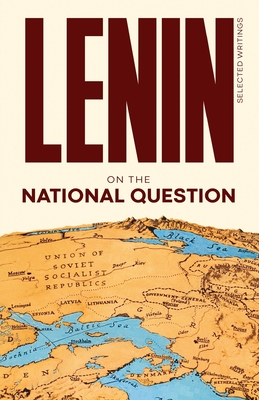Lenin Selected Writings: On the National Question

Lenin Selected Writings: On the National Question
"Complete equality of rights for all nations; the right of nations to self-determination; the unity of the workers of all nations - such is the national programme that Marxism, the experience of the whole world, and the experience of Russia, teach the workers." - Lenin
Tsarist Russia was a "prison house of nations". A majority of the population belonged to national groups oppressed by the tsarist regime, which suppressed their languages, their religions and their cultures. The national question was therefore crucial from the point of view of the workers' movement. It could only be solved with a revolutionary programme.
This was a complex question which required firmness in principle and extraordinary flexibility in tactics in combining two different aspects: the unity of the working class in one party cutting across national barriers in the common struggle against autocracy, and the defence of right of nations of to self-determination, including their right to form an independent country if they so wished.
Lenin's ideas and method shine as a remarkable example of this approach. The struggle with the Jewish Workers' Union, the Bund, and the polemic with the Polish Social-Democrats clarified the revolutionary perspective on the national question.
Once in power, Lenin and the Bolsheviks carried out their programme in practice in the extremely difficult conditions of the civil war and foreign military intervention.
It was precisely the national question which formed the battleground for Lenin's last struggle against the rising bureaucracy and its heavy-handed, Great-Russian chauvinist approach.
The national question once again is coming to the fore in this epoch of crisis and instability. Lenin's patience and his method of putting forward a class perspective on this question is a rich tradition for communists to learn from today.
PRP: 192.14 Lei
Acesta este Prețul Recomandat de Producător. Prețul de vânzare al produsului este afișat mai jos.
172.93Lei
172.93Lei
192.14 LeiLivrare in 2-4 saptamani
Descrierea produsului
"Complete equality of rights for all nations; the right of nations to self-determination; the unity of the workers of all nations - such is the national programme that Marxism, the experience of the whole world, and the experience of Russia, teach the workers." - Lenin
Tsarist Russia was a "prison house of nations". A majority of the population belonged to national groups oppressed by the tsarist regime, which suppressed their languages, their religions and their cultures. The national question was therefore crucial from the point of view of the workers' movement. It could only be solved with a revolutionary programme.
This was a complex question which required firmness in principle and extraordinary flexibility in tactics in combining two different aspects: the unity of the working class in one party cutting across national barriers in the common struggle against autocracy, and the defence of right of nations of to self-determination, including their right to form an independent country if they so wished.
Lenin's ideas and method shine as a remarkable example of this approach. The struggle with the Jewish Workers' Union, the Bund, and the polemic with the Polish Social-Democrats clarified the revolutionary perspective on the national question.
Once in power, Lenin and the Bolsheviks carried out their programme in practice in the extremely difficult conditions of the civil war and foreign military intervention.
It was precisely the national question which formed the battleground for Lenin's last struggle against the rising bureaucracy and its heavy-handed, Great-Russian chauvinist approach.
The national question once again is coming to the fore in this epoch of crisis and instability. Lenin's patience and his method of putting forward a class perspective on this question is a rich tradition for communists to learn from today.
Detaliile produsului










